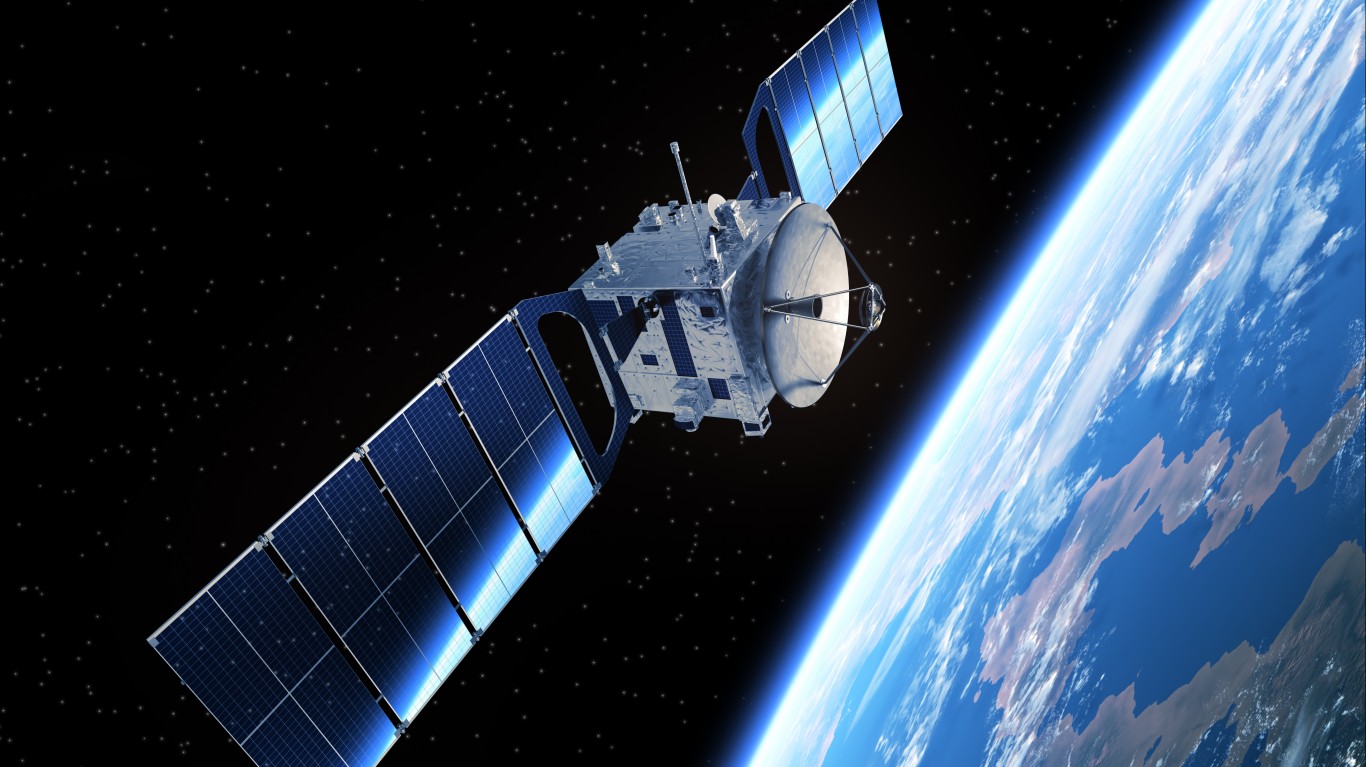Technology
What's Up With Apple: Satellite-Capable iPhone, App Settlement and More

Published:

Shares of satellite communications firm Globalstar were soaring Monday morning following a Sunday report at MacRumors that Apple Inc. (NASDAQ: AAPL) has included low-earth orbit (LEO) satellite connectivity in the iPhone 13 due for release any day now.
The report is based on a note to investors from long-time Apple analyst Ming-Chi Kuo outlining the new feature that will allow iPhone users to make calls and send text messages even from areas with no cell service. According to Kuo, the coming iPhone includes a customized Qualcomm baseband chip that permits satellite communications. Other smartphone makers have chosen to wait until 2022 to implement the satellite connectivity function.
Other players in the satellite communications business are Iridium, Inmarsat and — wait for it — SpaceX, which currently has more than 1,600 LEO satellites in service. SpaceX CEO Gwynne Shotwell last week explained a current lull in new launches, saying the company is adding lasers to the next batch of satellites.
Globalstar, however, is the current favorite to be the first to offer iPhone satellite connectivity. The company has been rumored to be working with Qualcomm on a future version of the satellite baseband chip. Globalstar is based in Covington, Louisiana, a few miles north of Lake Pontchartrain, directly across from New Orleans.
According to Kuo and MacRumors, the “simplest scenario” for satellite communications would involve network operators like Verizon, AT&T and T-Mobile striking deals with the satellite company that would enable satellite service for the operators’ customers “with no additional contracts or payments required.”
New York Times reporter Jack Nicas on Friday called the settlement that Apple reached last week with its community of small (less than $1 million in annual sales) developers “a minor change to a set of rules that are at the center of complaints about how Apple controls its App Store.”
Apple’s main concession, aside from cash payments, was a lifting of its prohibition on allowing app developers to send emails to customers (with the customers’ permission) explaining how they can choose to pay for the app without using Apple Pay.
App developer David Heinemeier Hansson, co-founder and chief technical officer of Basecamp, developer of the $99-per-year Hey email program, called Apple “gangsters” back in June of last year when Hey was launched. He wrote in a blog post Friday that “both parties [to the settlement] have assumed their ceremonial positions in a pointless settlement that reaffirms existing provisions and then asks for a couple of cornflower blue icons.”
Regarding the so-called steering provisions that Apple has modified to allow developers to send emails to customers, Hansson comments:
So the steering provisions of the App Store, that developers are not allowed to tell users inside their app or on the signup screen about other purchasing choices than IAP [in-app purchases] – the only places that actually matter! – is being cemented with this “clarification”. It draws a thicker line, asserts Apple’s right to steer in the first place, and offers the meaningless concession of opt-in email, which was something developers had already been doing.
Finally, Australia’s government is considering recommendations from a study it commissioned that recommended that the government be empowered to designate digital wallet providers like Apple and Alphabet/Google as payment providers. The effect would be to bring the tech giants inside the regulatory tent, according to a report from CNBC.
Thank you for reading! Have some feedback for us?
Contact the 24/7 Wall St. editorial team.